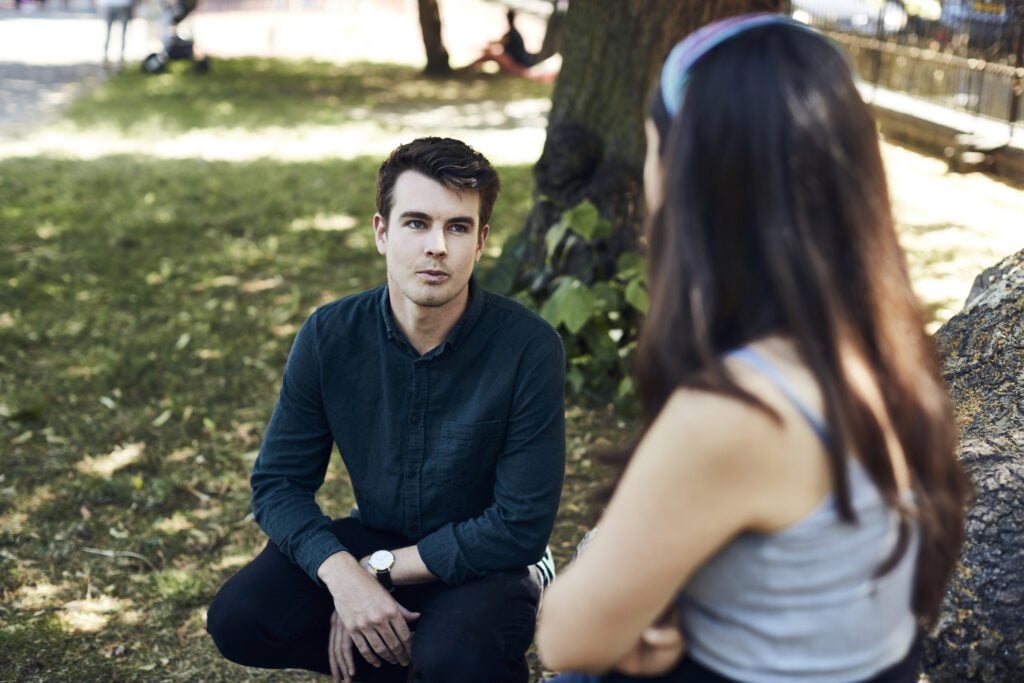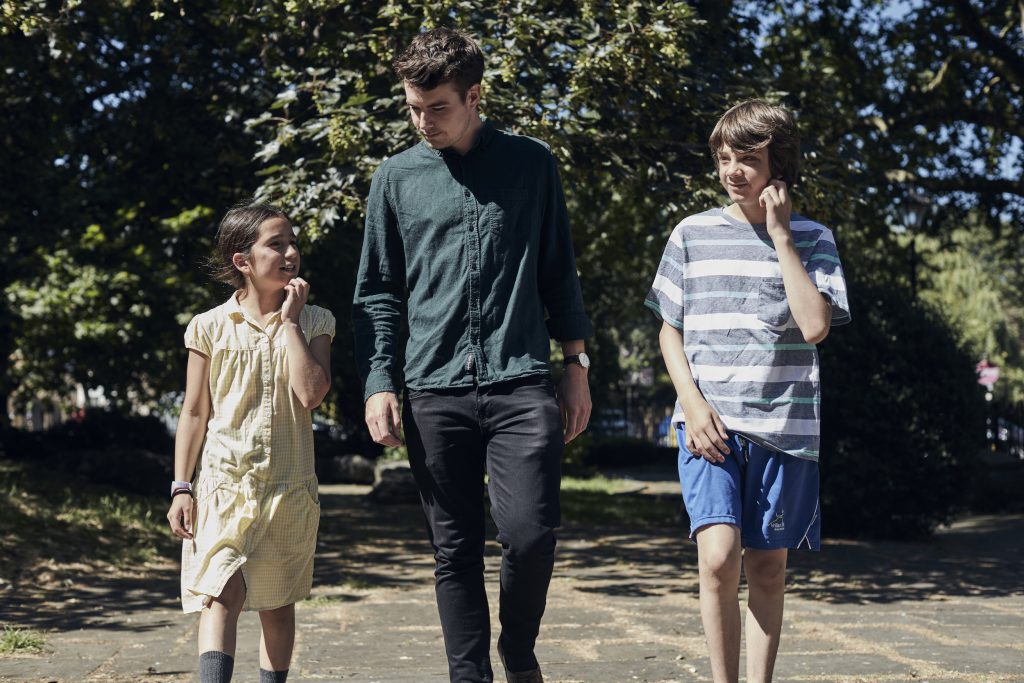
I swapped my dull grad scheme for a career in social work and I’ve never looked back
‘The reality couldn’t be further from the media narrative’
Exeter grad Luke was fixed on a career in journalism after uni. After a few internships, he realised being chained to a desk writing meaningless material in a stale office wasn’t for him – so, he made the leap into social work. Now, he’s dealing with high-risk cases on a daily basis and never finds himself stuck at his desk.
When you think of social work, the TV dramas and Channel 4 films don’t paint it in the best light. There’s an assumption that social workers are only concerned with taking children away from their families, but we spoke to the grads working in child protection social work, and it turns out that couldn’t be further from the truth.
Apply for Frontline’s Leadership Development Programme now
Luke, Exeter grad

What made you want to go into social work, rather than a normal grad job?
Having tried out some placements and internships in stale office environments, I knew I wanted flexibility in my work – with social work, you pretty much run your own schedule as you’re always on the move. I also wanted to get out of my comfort zone, and this offered me two years to do that, with a master’s on top of it.
Had you ever considered social work before?
Most Read
No, to be honest. I’d always seen it in a negative light – I guess the media narrative is all I’d ever experienced, which is usually blaming social workers for tragedies. The reality couldn’t be further from that.
What did the training involve?
You start with a six-week intensive course at Warwick Uni. The lectures go through the legal side, direct intervention work, safeguarding and the risks, as well hearing from loads of external speakers. You then have two weeks before you start with your local authority.
Earn up to £35k in your first two years with Frontline
Apply to Frontline’s Leadership Development Programme now

How does this job differ to a regular grad scheme?
Every day is so unpredictable, and it really keeps you on your toes. The families I work with will have a range of issues from domestic violence to child sexual exploitation.
On a normal day, I’ll go to a family home to do some one to one work with them, covering boundaries or communication in their household. It’s hugely insightful and you’re never marooned at a desk.
Even the more admin based stuff is extremely rewarding. For example, I was recently working with a family who can’t speak English, helping them sort out their benefits and school uniforms for September. The work is never dull or without purpose.
What are the challenges you’ll face on this job?
Some people you visit may have a more aggressive history, but as long as you’ve planned and prepared for it, you’ll feel safe. There will be security on hand, and everything is monitored for your safety. You’re part of a really tight team here.
Would you recommend this role to another graduate?
Yeah, absolutely. It’s such a varied job – whether you like problem-solving, communicating, presenting, or even creative thinking, you’ll find your niche. You come out at the end of the two years with a master’s in social work while being on a full-time salary.
University is quite a privileged place to be, and this really exposes you to things you wouldn’t see otherwise.
Gain a master’s and earn up to £35k after your first two years at Frontline
Apply to Frontline’s Leadership Development Programme today
Paul, Bristol grad

What made you want to go into social work?
I graduated in 2013, and immediately after leaving uni I went to London to do a marketing internship, but it didn’t take long for me to realise that the corporate world wasn’t for me. I just wanted a job that was meaningful and that fit with my values.
I worked for a couple charities, and nearly went back to uni to become an immigration solicitor, but social work felt like I was keeping up the momentum in my career.
What do you think the biggest misconception about social work is?
I think people assume that social workers are only interested in taking people’s children away, but it takes a hell of a lot for it to reach that kind of action. Only the court or the police have the legal power to do that.
There’s nowhere near as much animosity and confrontation as people think.
What’s been the most memorable moment for you so far?
There was a high-risk case allocated to me when a mother was pregnant, and the discussion was over the care of the child. When we went to court it was my report, recommendations and care planning that were being discussed and agreed. It was ultimately deemed safe enough for her to stay in her mum’s care.
Even now, I look back and can’t believe that I’m doing what I do now.
Apply now to Frontline’s Leadership Development Programme

How do you make sure you’re able to switch off?
You have to think about yourself as well. For me, I live in a house with two friends where I’m able to come home and talk about what I’ve been through (within reason). They both work in the public sector as well so they understand it. A support network of your own is key.
What’s the most rewarding part of the job for you?
I would say doing work with the children. We work with kids of all ages, and it’s always very focused work that requires us to build a trusting relationship. Although it’s not always fun, it is an enormous privilege to be in that position.
One part of our job is called Life Story work, where we help children who aren’t in their parents’ care to understand the decisions being taken in their life. We provide them with that clarity and closure.
What’s the culture like in this field? Is it quite social?
It’s really social – there are loads of nights out and there’s a pub crawl every month or so. Even though you’re not working in a typical grad job, you don’t miss out on being around like-minded people and the social aspect of grad life.
It’s also really diverse – people have come into it from everywhere. Straight out of uni, career changers, or even just people who want to give back to where they’re from.
What sort of person would suit this role?
I think you need to have a reasonable degree of confidence. You have to be willing to dive into the role, and if you’re somebody people can warm to you’ve already won half the battle.
Frontline are offering graduates from all degrees a fast track scheme into social work
You could receive a master’s and a salary of up to £35k in your first two years















